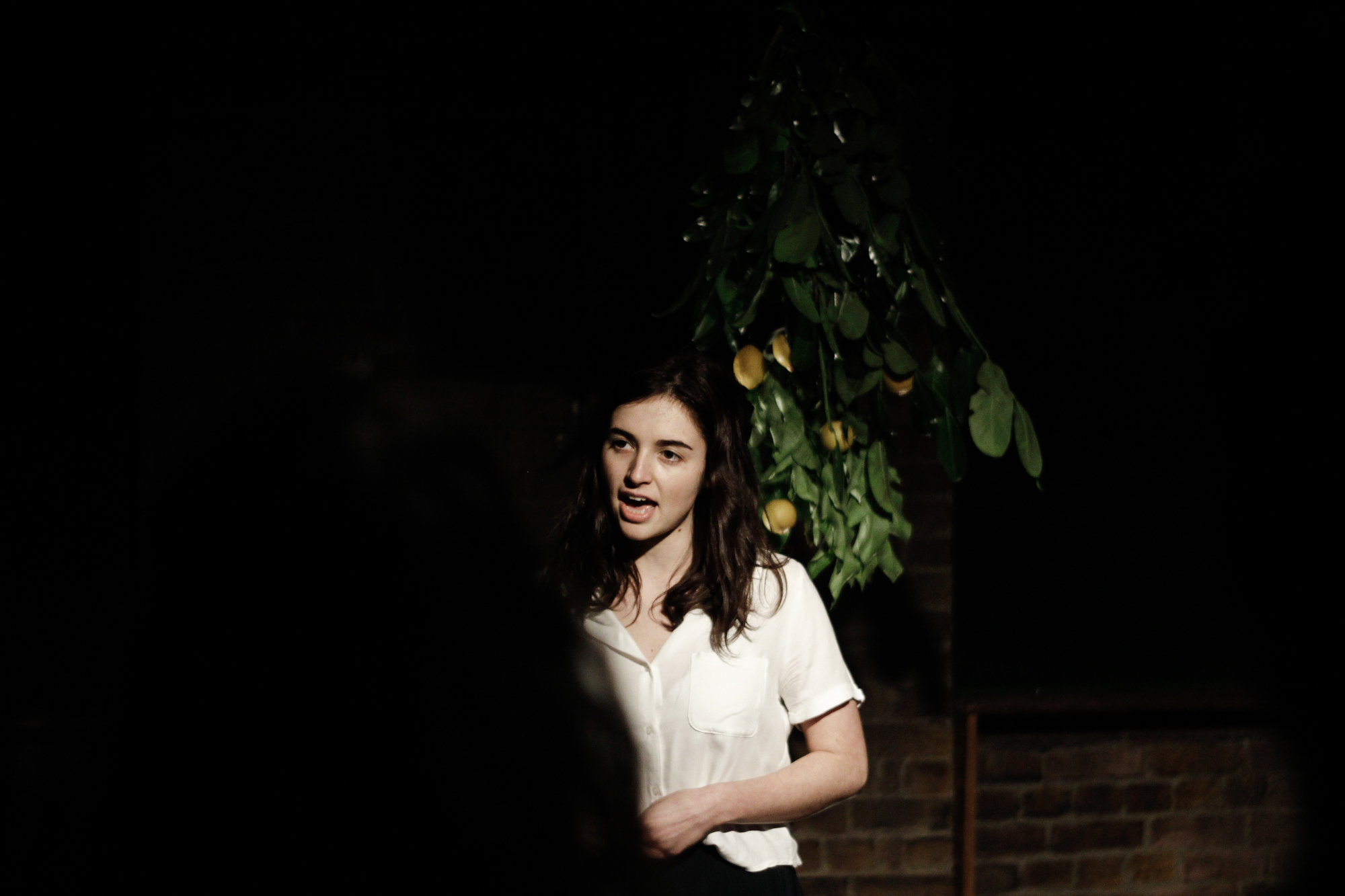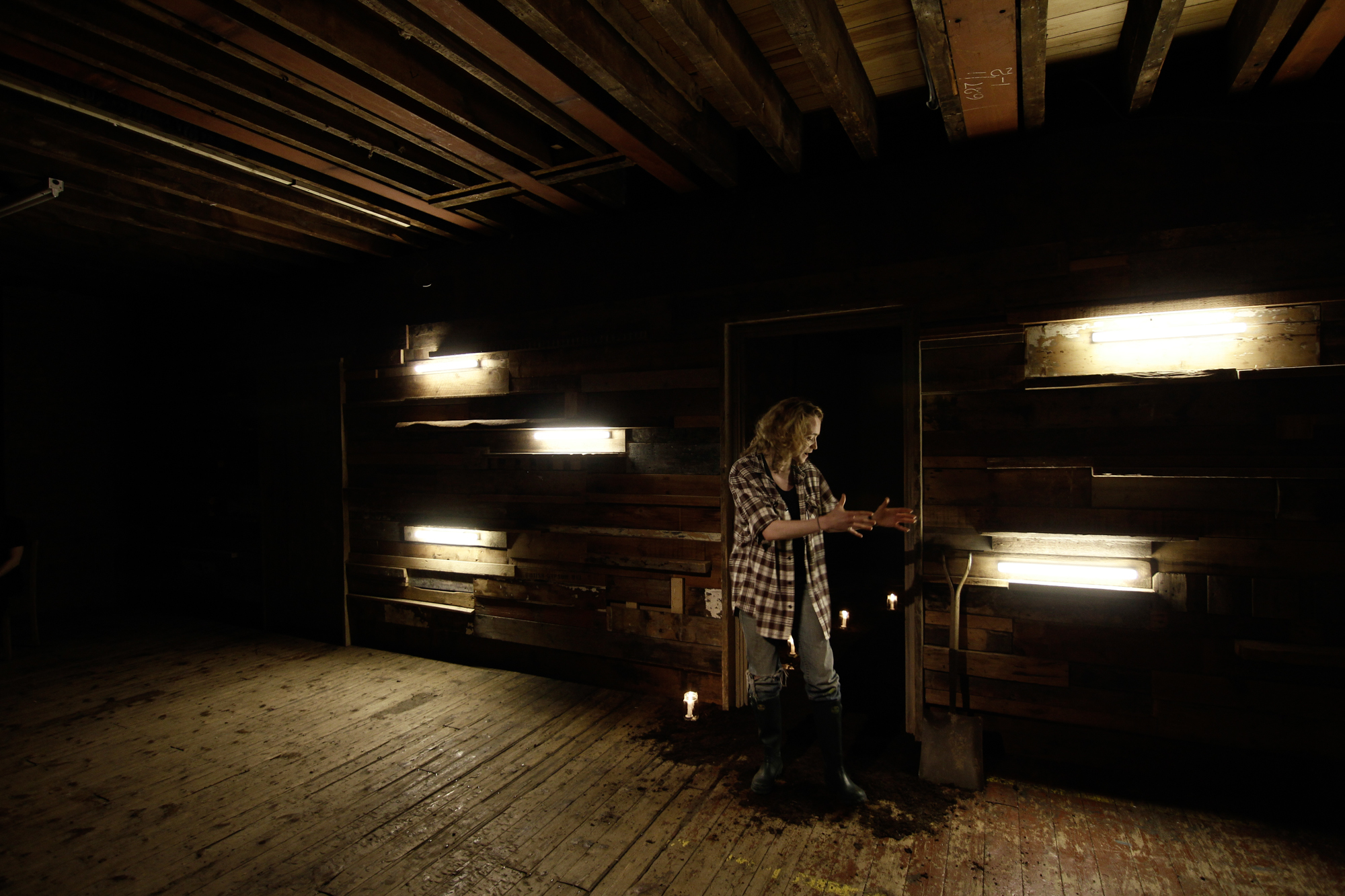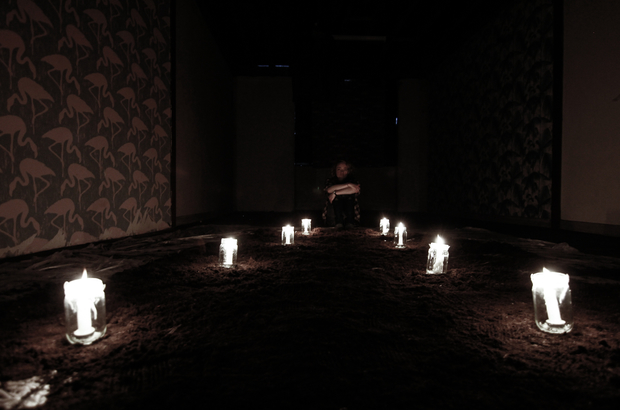LUCY LAWRENSON reviews Tejas Verdes at Ugly Duck’s 47/49 Tanner Street.
How does one begin to tell the story of 3,000 people dead? 3,000 lives mutilated or obliterated in the dark torture chambers of Tejas Verdes, a Chilean holiday-resort turned torture camp in the ’70s? For playwright Fermín Cabal, the answer was to create a piece of art which, through the medium of five voices across seven monologues, tells the story of one woman, Corolina. In this way, the experiences of a group are boiled down to the fragments that form the story of an individual, and as a result the audience can glimpse an insight into the terror employed by General Pinochet’s regime. This is the mechanism by which a dark chapter of Chile’s history is brought to light in Tejas Verdes. However, another question remains: in staging the work, how does one utilise the drama of the piece in a way that affords respect and integrity to the truth behind the fiction? Watching Emily Louizou’s production, the effort undertaken to remain cognisant of the lives lost and trauma lived is almost palpable, and it is this fact that grounds the piece and makes it what it is: frankly, breath-taking.

Entering the warehouse rooms as a unit, the audience finds itself in almost total darkness, clustered around what one can only identify as a performance area by the shadowy presence of silent actors. The effect of this is immediate immersion, and there is a perceptible change of mood in the spectators as we all glance nervously around, wondering when the action will begin and where it will stem from. This sense of uneasiness sits well with the themes of the play, and the unsettling sing-song chorus of old nursery rhymes that rises from actors darting between audience members furthers the sense of disorientation which the space facilitates. What follows is a series of monologues staged in different corners of the warehouse, moving the audience across both the floor itself and the spectrum of lived experiences in Pinochet’s Chile. As such, the audience is confronted with the conflicting accounts of the dictator’s lawyer, the on-site doctor who denied all allegations of torture to a tribunal following the unearthing of the Tejas Verdes horror, and the victims themselves, who embody both the physical and emotional brutality of the regime’s interrogation techniques. This makes for an intentionally discomforting experience; moved by the harrowing testimonies of the victims, the audience is then placed in the position of a tribunal member, angered by the cold lies of the doctor and yet simultaneously moved by her allegation that we are all somewhat complicit in the goings-on of the detention centre, even if by silence alone.
This range of perspectives, coupled with the partial integration of the audience into the narrative, gives a powerful insight into the personal dimension of the tragedy of Tejas Verdes, humanising the figures even as the intensity of the brutality described raises doubts about the very concept of humanity. It is with this sensitivity and craftsmanship that Louizou and her team give life to Coralina and her story, and in so doing pay a deeply moving and genuinely respectful tribute to those who suffered.

All in all, this is a powerful production, which combines an excellent use of space with actors full of talent and sensitivity. The result is a piece that, rather than simply eliciting one-dimensional condemnation, invites a complex and highly personal reflection on how political tension can quickly give way to human rights violations, and the role of the individual in creating and sustaining narratives around such events. On leaving 47-49 Tanner Street, one is suddenly aware of the luxury of feeling the sun on one’s face, having spent 70 minutes in an environment which has been carefully crafted to convey not only the physical oppressiveness of a detention centre, but the stifling harshness of a bloody and cruel dictatorship. It is in the actors’ shared ability to tell this story in such an authentic manner that the power of the performance lies.
Collide Theatre’s Tejas Verdes played on 1st and 2nd April. Find more information about the production here, and see Jess Howley-Wells’ interview with director Emily Louizou below.
Featured image courtesy of Collide Theatre.





